Review of the Day: Hidden by Helen Frost
 Hidden
Hidden
By Helen Frost
Frances Foster Books (Farrar Straus & Giroux)
$16.99
ISBN: 978-0-374-38221-6
Ages 10 and up
On shelves now.
If poems had been introduced to me as a child as puzzles, maybe I would have taken to them a little more. A poem is a kind of puzzle, isn’t it? Depending on the kind of poem you have to make the syllables and words conform to a preexisting format. Unless it’s free verse, of course. Then all bets are off. That’s what you do when you’re writing a poem, but can reading one be an act of puzzle-solving as well? Earlier this year I reviewed Bob Raczka’s Lemonade: and Other Poems Squeezed from a Single Word which required the reader’s eyes to leap around the page, piecing together the words. Hidden by Helen Frost requires relatively less work to read, but the reader willing to seek out the messages hidden (ho ho) in some of the poems will be amply rewarded. The result is that “Hidden” manages to be both a book of poetry and a wholly original story of two girls bound together by a singular, accidental crime.
When you go to a new summer camp you usually have to deal with not knowing anyone. That’s not Darra’s problem though. Her problem is that she does know someone and, worse, that person knows her too. Years and years ago Darra’s father accidentally kidnapped a young girl by the name of Wren Abbot. He didn’t mean to, of course. He was carjacking, unaware that Wren was hidden in the back of the car, frightened out of her mind. Years later Darra, who once helped Wren, runs into the girl that, she is convinced, led the cops back to her home and got her dad arrested. Now they have no idea how to act around one another, and in the midst of the usual tween summer camp dramas they need to return to the past to clarify what happened and to figure out if they both can recover from the experience.
ADVERTISEMENT
ADVERTISEMENT
I’ve been a fan of Frost’s for years. Lots of authors write verse novels (stories written in free verse) and most of them are little more than just a series of sentences broken up without much reason except to pad out the pages. Frost is never like that. When she writes a verse novel she commits. Her books are written in various forms for a reason. In The Braid she created an intricate braid-like form of poetry that twisted and turned on itself. In Diamond Willow her poems were diamond shaped with special messages hidden inside. Hidden take a different tactic. Wren’s voice is straight up free verse, while Darra’s requires a little more work. As Frost puts it, “The last words of the long lines, when read down the right side of the page, give further insight into her story.” Well when I read that I had to flip the book back to the beginning to see if it was true or not. Sure as shooting, each and every one of Darra’s sections yields a new side of her story. The words behind her words, you might say. The experience of discovering this is akin to a small treasure hunt. When pitching this book to kids, make sure you play up this aspect. Some children will immediately decode the messages first. In doing so, they’ll reveal a fascinating mystery and will probably be inclined to read the whole book as well.
Considering the format, the story makes for a very fast read. That said, you might think that the writing was relatively simple as well. Yet for all that it stands at a svelte 147 pages, Frost has managed to say only that which is important to the text. There isn’t any blubber to be found. Nothing to cut out. To show the emotional journey of two damaged girls, many authors would pile on the descriptions and the overblown language. Frost doesn’t have that luxury, so the result is a spare, pointed read without a trace of fat. It’s a little lesson in saying only what what is essential.
The long and short of the matter is that I believed in these girls. I believed in Darra with her fears about belonging to a different class than most of the girls at the camp. I believed in Wren, suppressing the memory of what happened all those years ago. They work because they aren’t the usual stock characters. This isn’t a story of the rich girl and the poor girl that become friends. And then there’s Darra’s father. She loves him, though he was abusive and a thief. Dig a little deeper (and read the hidden messages in Darra’s speech) and you get a glimpse of what made him that way. It’s not an excuse, but the book does a good job of showing that even an abuser can be loved.
Kids get assignments in school to read books that contain “more than 100 pages” for class all the time. Reluctant readers hate this and the older the kid the harder it is for them to find something that fits. For them, verse novels have become kind of a godsend. Here you have all the plot and character development a teacher could require, but with words that don’t intimidate someone unaccustomed to Harry Potter-sized tomes. Of the verse novelists, Frost is one of the best because she never forgets that books of this sort are poetry, first and foremost. So for something original and smart, fun and harrowing all at once, Hidden delivers. It’s verse done right.
On shelves now.
Source: Final copy sent from publisher for review.
Notes on the Cover: Now this is very interesting. Insofar as I can tell there is never a physical description of Wren in this book (folks are encouraged to please prove me wrong on this point). If that statement is true then either cover artist Odessa Sawyer made an executive decision on Wren’s race or someone involved told her to make her dark-skinned. I don’t really care since I’m rather thrilled to see a girl on a cover that isn’t Caucasian. And I’m doubly thrilled if we can make races other than white the default color for a given character in a text. A pity the jacket cuts off the full image. I rather like what Sawyer did here:
Other Blog Reviews:
- Collecting Children’s Books
- The Reading Zone
- Poetry for Children
- Sal’s Fiction Addiction
- Fiction State of Mind
- The Musings of a Book Addict
- everead
- Reading Nook
Professional Reviews: A star from Kirkus
Other Reviews: Richie’s Picks
Interviews: BookPage
Misc: Read a PDF of an excerpt of the book here if you’re curious.
Videos:
Hear Ms. Frost read a bit from the book at the end of this video:
Filed under: Best Books of 2011, Reviews
About Betsy Bird
Betsy Bird is currently the Collection Development Manager of the Evanston Public Library system and a former Materials Specialist for New York Public Library. She has served on Newbery, written for Horn Book, and has done other lovely little things that she'd love to tell you about but that she's sure you'd find more interesting to hear of in person. Her opinions are her own and do not reflect those of EPL, SLJ, or any of the other acronyms you might be able to name. Follow her on Twitter: @fuseeight.
ADVERTISEMENT
ADVERTISEMENT
SLJ Blog Network
Name That LEGO Book Cover! (#53)
K is in Trouble | Review
Fighting Public School Book Bans with the Civil Rights Act
Take Five: Middle Grade Anthologies and Short Story Collections
ADVERTISEMENT




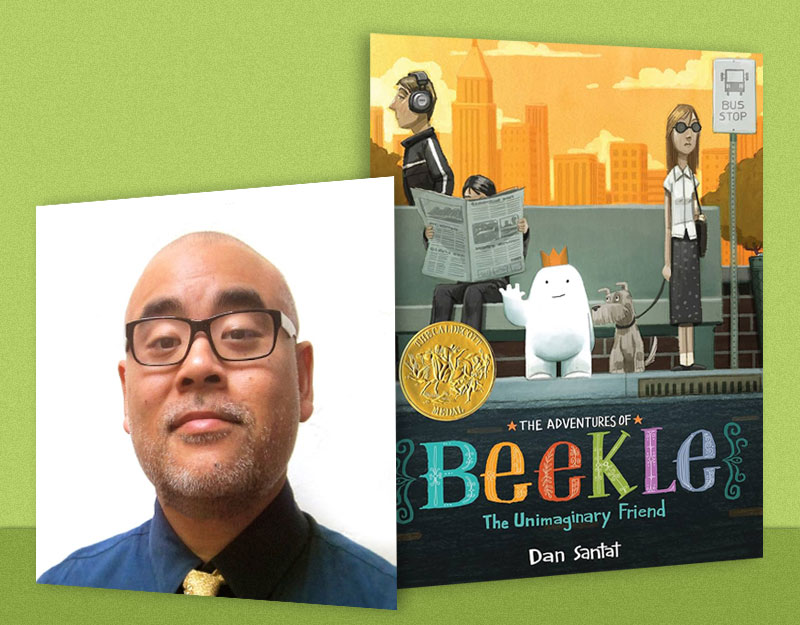
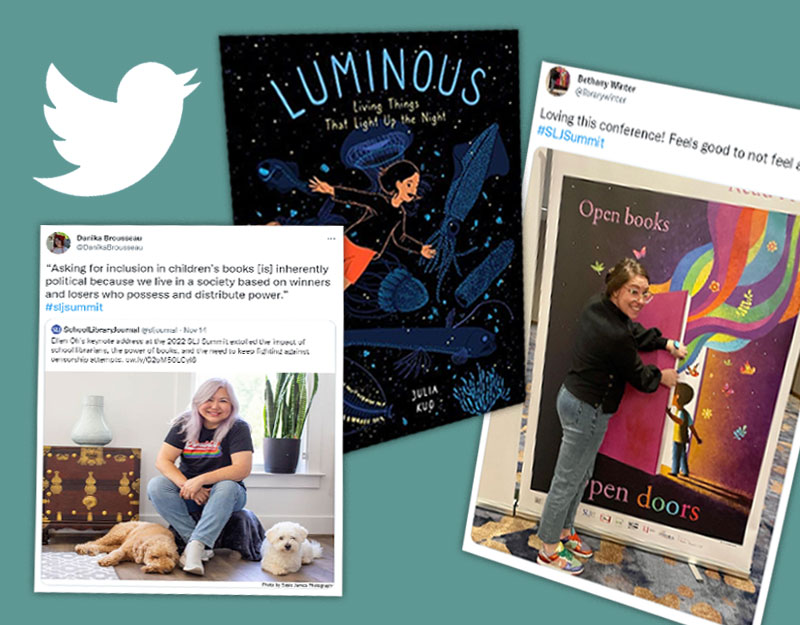
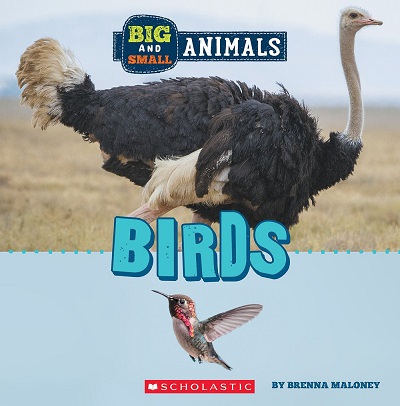
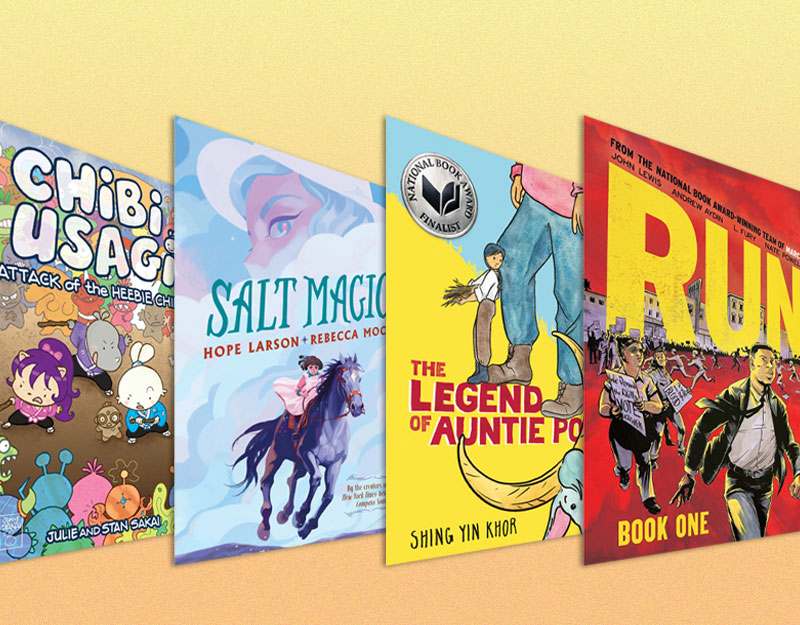
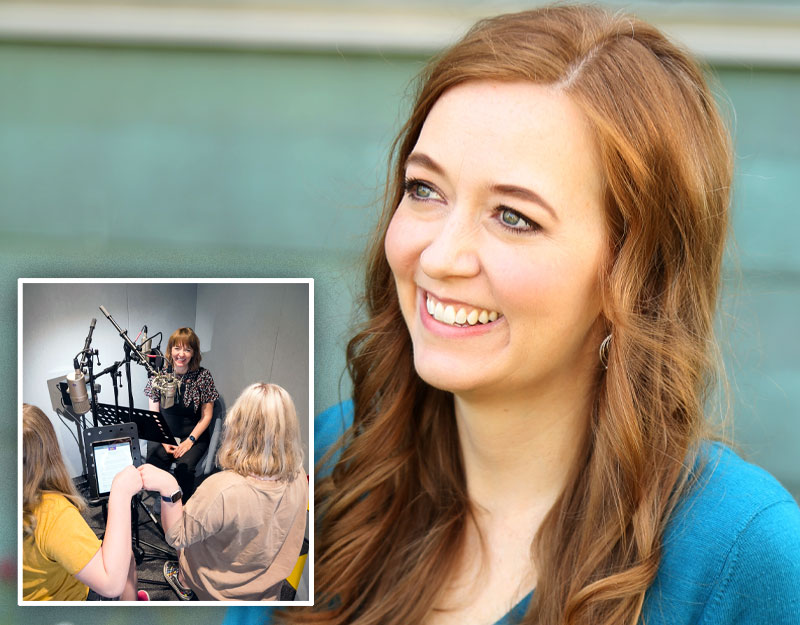
I thought there was some mention of Wren’s race in the book. When I asked my co-worker, who just finished the book more recently, if she remembered where, she pointed out that Darra mentions that Wren used to wear beads in her hair (page 101). When I was reading that passage, I felt a comfortable expression of physical difference exchange between the two girls. When it’s determined on page 103 that Darra has red hair and green eyes, it was firmly established for me which girl on the cover is which. *I think* that’s when it’s first established, and that Frost left it vague in the first half of the book to build tension in the reader and to force assumptions.
Oh, that’s a good point. I hadn’t considered the late introduction of Darra’s physical appearance to be a purposefully prod at personal stereotypes. I love that idea of incorporating the cover into the text in that way. I too remembered the beads in the hair exchange, but that didn’t seem sufficient to establish a character’s race necessarily.